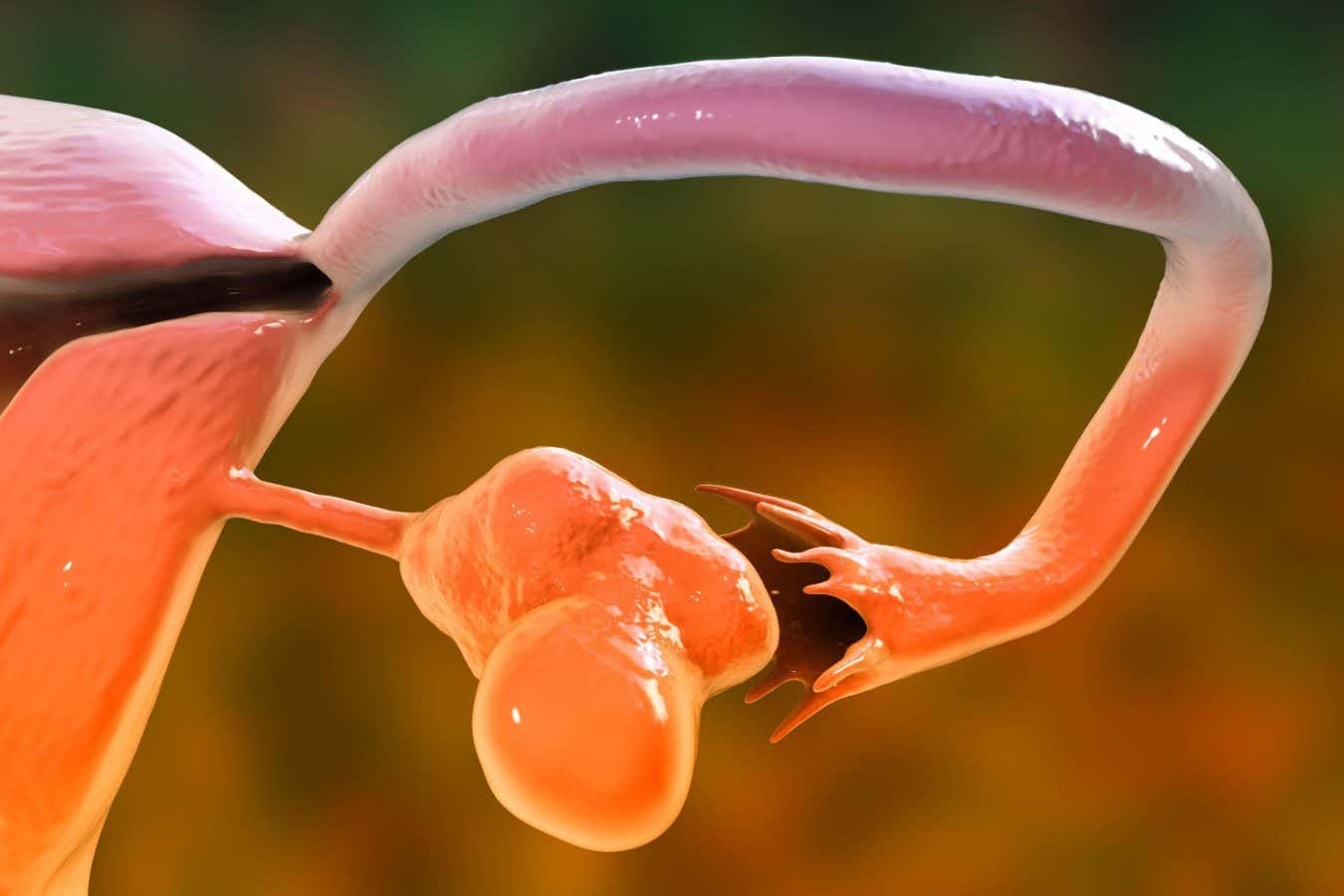Illustration of enlarged ovaries in someone with polycstic ovarian syndrome
Science Photo Library/Alamy
Polycystic ovarian syndrome can be transmitted through families via chemical tags that change the structure of DNA, suggesting that drugs that change these tags in embryos could prevent the condition.
People with polycystic ovarian syndrome (PCOS) have at least two of three key functions: high levels of male sex hormones such as testosterone, irregular periods or none at all, and a build-up of immature eggs look like cysts-on their ovaries.
The condition often runs in families, but it is not clear how it is inherited. “About 25 to 30 [genetic mutations] Has been attached to PCOS, but it just explains a small fraction of the inheritance, ”says Elisabet Stener-Victorin at the Karolinska Institute in Sweden.
Studies in Miche suggest that changes in epigenetic brands – chemical tags that turn on and off the gene without changing DNA sequences – can also play a role. It is believed that most such marks are deleted when eggs are formed, but some are believed to remain, a potential form of inheritance.
To see if this occurs in connection with PCOS in humans, Qaunshu Zhu analyzed at Chongqing Medical University in China and his colleagues analyzed epigenetic brands in eggs and 3-day-o-cold embryons donated by 133 people with PCOS and 95 without the condition. “No one has really done it this way in human material,” says Stener-Victorin.
This dream a connection between being a donor with PCOS and changes in patterns of three types of epigenetic marks in eggs and embryos. Two of these brands turn off genes by making DNA coil more dense around proteins called histones, which help pack it inside cells. This makes the genetic code in DNA less available for molecules that transcribe it to RNA, a central step in making proteins. The third type of brand activates genes by loosening DNA coils.
Together, the PCOS-bound epigenetic changes changed the metabolism of eggs and embryos, suggesting that they can increase the risk of PCOS in offspring. But further studies should explore how they affect PCOS symptoms in the offspring of mice and humans, says Stener-Victorin. “For now, we just know that these brands are different; it doesn’t require them to mean they have a negative effect,” she says.
In another experiment, the team used a drug to turn the epigenetic changes, which suggested this could reduce PCOS risk. “If we confirm that changing these histonic marks will change PCOS features in the next generation, we have a strong target for prevention,” Zhu said in a press release. In addition, the team says clinicians could potentially use PCOS-related epigened brands to choose the healthiest embryos during in vitro fertilization.
Zhu presents the results at the annual meeting of the European Society of Human Reproduction and Embryology in Paris on July 1st.
Topics:
- Epigenetics/
- Women’s health
